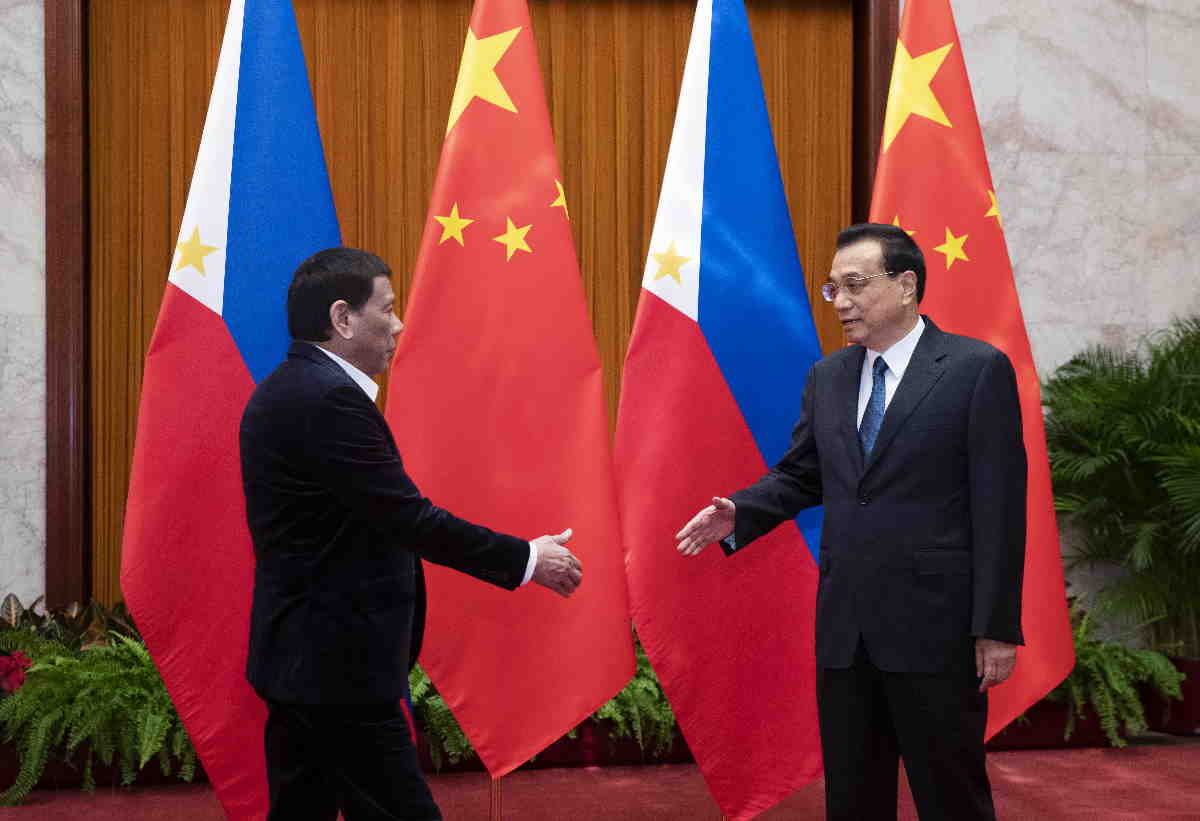Beijing told visiting Philippine President Rodrigo Duterte that its position on the South China Sea was not up for negotiation, a spokesman for the leader said Friday.
China claims most of the contested sea, including waters close to Philippine shores, and has rejected a United Nations (UN)-backed international tribunal ruling that said its assertion to the Sea is without legal basis.
Duterte is under growing pressure at home to challenge China – after largely setting aside the standoff for years – with tensions high after a Chinese fishing trawler hit and sank a Filipino boat in June in the contested waters.
In a meeting between the Philippine leader and Chinese President Xi Jinping on Thursday evening, Xi reiterated his government's position of not recognising the tribunal ruling "as well as not budging from its position", said Duterte's spokesman.
The pair agreed to work together to "manage" the issue and recognised "the importance of self-restraint and respect for freedom of navigation in – and overflight above – the South China Sea", he said.
The decision to raise the issue marks a turnaround for Duterte, who had revived once-icy diplomatic ties with Beijing after being elected in 2016 when he set aside the maritime ruling in favour of wooing Chinese aid, trade and investment.
Renato de Castro, professor of international studies at Manila-based De La Salle University, said Duterte was expected to bring up the issue on his visit to "go through the motions".
"At this point in time, he has nothing to lose because he has only three years to go", he said.
"So (he) might as well raise it expecting that President Xi Jinping would basically ignore it or reject it. It's... a classic charade."
‘Put aside disputes’
According to a statement from China's foreign ministry, Xi said the two countries should "put aside disputes, eliminate external interference" over the South China Sea, and "make greater strides in the joint development of offshore oil and gas" in the region.
Parts of the South China Sea are also claimed by Taiwan, Brunei, Malaysia and Vietnam.
China invokes the so-called "nine-dash line" to mark its historic rights to the territory, which is based on a vague map that emerged in the 1940s.
Despite the territorial issues, Manila and Beijing signed a series of agreements over joint cooperation in fields including education, and Duterte hailed the "friendship and the value of our ties" between the two countries. - AFP
